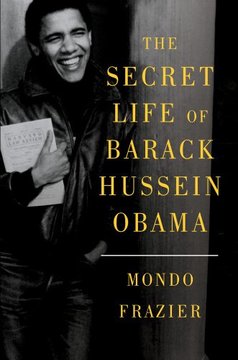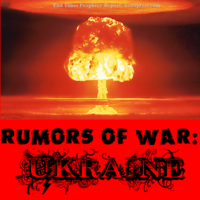
Back before there was a chicken in every pot, a car in every garage, or a lawyer in every speed dial, laws could be passed and common sense could prevail.
Those days are no longer.
A bill which passed the house and is now being considered in the Senate, Violent Radicalization and Homegrown Terrorism Prevention Act, Senate Bill 1959, is a piece of legislative mischief waiting to happen.
The overly-broad legislation is another tool in the fight against terrorism, but like all tools, could be used, as written, as a deadly weapon. A more appropriate name might be the Law of Unintended Consequences of 2007.
For conservatives and liberals alike, any legislation is likely to cause unintended consequences. What are we talking about when we say 'unintended consequences'?
For example, it is often conjectured that if the Treaty of Versailles had not imposed such harsh conditions on Germany, World War II would not have occurred. As such, war was an unintended consequence of the Treaty of Versailles.[1]It's not often DBKP goes looking for ideological back-up on the Left, but in this case, that's where most of the outcry seems to taking place.
Of course, it's all layered with "Bush coup" and "Bush Nazi" and talk of Evil Dick Cheney, but strip away all the overblown rhetoric and political shots they can't seem to resist taking, and there is a point to be made.

This bad bill will make for bad law.
The bill states:The authors of the bill and the Bush Administration don't intend the bill to be used like the above examples.
‘...ideologically based violence’ means the use, planned use, or threatened use of force or violence by a group or individual to promote the group or individual’s political, religious, or social beliefs...
Note that this means the "planned use of force to promote a political or social belief" would be considered an act of terrorism. This all hinges on the definition of "force," of course. Based on the loose use of logic in Washington these days, and the slippery interpretation of the meaning of words, "force" could mean:
• A grassroots campaign to barrage Congress with faxes
• A non-violent street protest
• A letter-writing campaign that deluges the Senate with too much mail
• A sit-in protest that blocks access to a business or organization
• A grassroots e-mail campaign that overloads the e-mail servers of any government department or agency
You get the idea. "Force" could be defined as practically anything. And since the "planned use of force" would be considered a criminal act of terrorism, anyone who simply thinks about a grassroots action campaign would be engaged in terrorist acts.
If you stopped someone on the street and handed them a Bible, for example, this could be considered an act of terrorism ("...use of force to promote the individual's religious beliefs...")
If you sent a barrage of angry letters to Washington about global warming and the destruction of the environment by the U.S. military, this could also be considered an act of terrorism ("...to promote the individual's political beliefs...")
If you believe in same-sex marriage and you wrote a letter threatning a sit-in protest in front of your state's capitol building, this could also be considered an act of terrorism, even if you never carried it out! ("...planned use of force to promote a social belief...")[2]
But then, we were assured that the RICO Act would never be used against political protesters. Tell that to the National Right to Life movement. They engaged in a 17-year-long court odyssey to escape from a law that was passed in 1970 to take on organized crime.
Civil libertarians at the time of the bill's passage warned of its misuse and were pooh-poohed. Their worries would have been rightly discounted in a common sense society. Sadly, the U.S. doesn't seem to be that anymore.

The civil seizure laws, which repeatedly were trumpeted as a tool to fight "big drug dealers and cartels" also had unintended consequences. Federal and local law enforcement agencies routinely count on the money made from seized family mobile homes, farms and cars to plan their budgets now.
Police stopped 49-year-old Ethel Hylton at Houston's Hobby Airport and told her she was under arrest because a drug dog had scratched at her luggage. Agents searched her bags and strip-searched her, but they found no drugs.Advocates for civil seizure laws will point out that Ethel's case is not the norm. That's not much consolation for Ms. Hylton and others who've suffered similar fates. They are victims of unintended consequences of a poorly-written law, just as Senate Bill 1959 is poorly-written.
They did find $39,110 in cash, money she had received from an insurance settlement and her life savings; accumulated through over 20 years of work as a hotel housekeeper and hospital janitor.
Ethel Hylton completely documented where she got the money and was never charged with a crime. But the police kept her money anyway.
Nearly four years later, she is still trying to get her money back.[3]
Some other famous unintended consequences follow.
* Most economists believe that minimum wage laws increase the unemployment rate among low wage workers.This is not an anti-government screed: one of those would take up the better part of a week to construct and there's other, more important, work to do.
* The stiffening of penalties for driving while intoxicated in the United States in the 1980s led, at first, to an increase in hit and run accidents, most of which were believed to have been drunken drivers trying to escape the law (Later, legislators stiffened penalties for leaving the scene of an accident when driving while intoxicated as well).
* "Prohibition", in the 1920s U.S., originally enacted to suppress the alcohol trade, drove many small-time alcohol suppliers out of business and consolidated the hold of large-scale organized crime over the illegal alcohol industry. By the time the U.S. repealed Prohibition, the brewing industry had concentrated in a few major brewers, which had been able to ride it out. Sixty years later, the "War on Drugs," intended to suppress the illegal drug trade, likewise drove many small-time drug dealers out of business and consolidated the hold of organized drug cartels over the illegal drug industry. Additionally, it has led to the existence of street drugs of unknown strength and contamination; at least some drug-related (and particularly opiate-related) deaths are the result of accidental overdosing on drugs that a dealer neglected to dilute to the usual extent.
* In CIA jargon, "blowback" describes the unintended, even undesirable consequences of covert operations. Examples include:
o Operation Ajax, which contributed to the 1979 Iranian Revolution & the Iran hostage crisis
o Covert funding of the Contras in Nicaragua, which lead to the Iran-Contra Affair
o Covert funding of the Mujahideen, which led to the rise of the Taliban
* Government rent control has led to the unintended consequence of housing shortages and reduction in housing quality, increased difficulty for less desirable renters to obtain or retain housing and even to the creation of slums—areas where owners permit rental property to run down until it becomes uninhabitable, leading renters to leave.
* The locking of aircraft cockpit doors to prevent terrorists taking control of the aircraft resulted in Helios Airways Flight 522 crashing due to the pilots' loss of oxygen and the stewards' inability to control the craft.[4]
This is a call for a less-sloppy bill. Tightening the language to give the authorities a tool to fight legitimate terrorists, without non-terrorists having to worry wouldn't be so hard, would it?
If the bill's proponents can't construct the bill without using the far-reaching, vague language that is in it, then this whole bill needs to scrapped.
Cold.
Anyone who's ever had to stare down a local, let alone a federal, government agency knows the sick feeling the mere threat of prosecution brings.

Company CEOs know the feeling of being railroaded by Eliot Spitzer: pleading guilty to save the time, money and aggravation of facing a zealous prosecutor. And those CEOs had more money and assets available to them then an ordinary citizen caught up in this bill's assured future unintended consequences.
One other unsettling point was raised, though not being a peruser of Senate bills, it's hard to know whether it's valid, or more Left proof of the coming of Evil Dick.
While other government agencies, such as the Department of State, the Department of Justice, and the Department of Defense, are all referred to by their full names in Congressional documents, including this one, apparently the Department of Homeland Security is so big and so much more important than all other agencies, despite its ripe-old-age of 5 years, that now it is officially to be called the Department. No clarification will apparently be necessary any longer.[5]
The U.S. needs tools against terrorists. But it does not need tools against terrorists that have so much potential to be misused.
The Nixon Administration would never have dreamed that RICO would be used against pro-life protesters.
Just as another Republican administration never dreamed that ordinary citizens, not "large drug dealers and cartels" bear the brunt of poorly-written civil seizure laws.
This is a bad bill as written.
Terrorism is better combated with the aid of ordinary American citizens. Those citizens should be eager to help the government fight terrorists that threaten us all. The government needs tools against terrorism, not potential tools against citizens.
Mark down Senate Bill 1959, Violent Radicalization and Homegrown Terrorism Prevention Act, as another threat.
by Mondoreb
Want to help get this bad bill re-written? If not re-written, then stopped? Here are the phone numbers for the U.S. Senate switchboard: 1-877-851-6437 1-800-833-6354 1-888-355-3588 1-866-220-0044 1-866-808-0065 1-877-762-8762 1-866-340-9281 1-800-862-5530 How to do this: 1) Make sure you know the names of your Senators. 2) Call the U.S. Senate switchboard using one of the numbers above. 3) Ask to speak to the offices of your Senators. 4) Tell them you are strongly opposed to S. 1959, the Violent Radicalization and Homegrown Terrorism Prevention Act 5) Ask for their fax number. 6) Follow up your phone call with a written, signed letter that you fax to your Senators.[2] |
Sources:
1 - Law of Unintended Consequences
2 - Senate Bill 1959 to Criminalize Thoughts, Blogs, Books and Free Speech Across America
3- The Looting of America
4 - Wikipedia - Unintended Consequences
5 - BNN - S1959: Thought Crime Prevention Act of 2007
[images: advanceusa;dubyasworld;davidicke.com]
Death by 1000 Papercuts Front Page.






























No comments:
Post a Comment
Leave your name/nic.
We've changed the comments section to allow non-registered users to comment.
We'll continue like that until it's being abused.
We reserve the right to delete all abusive or otherwise inappropriate comments.